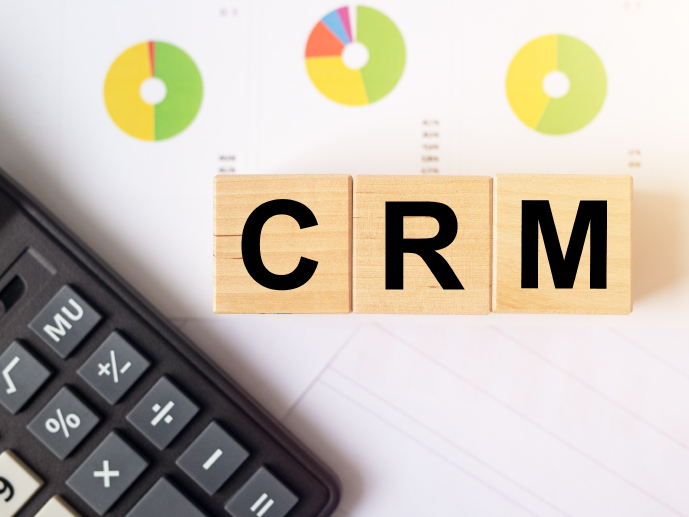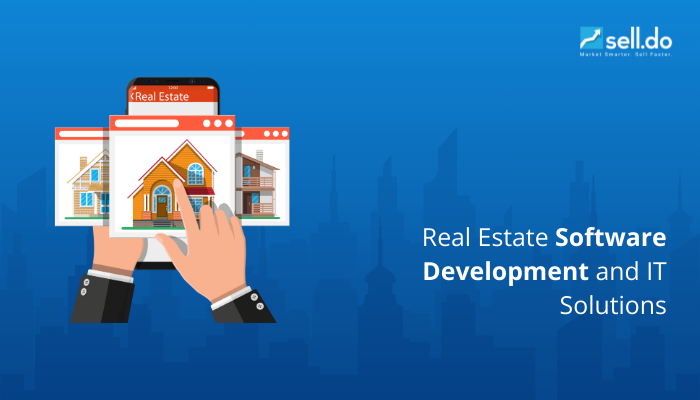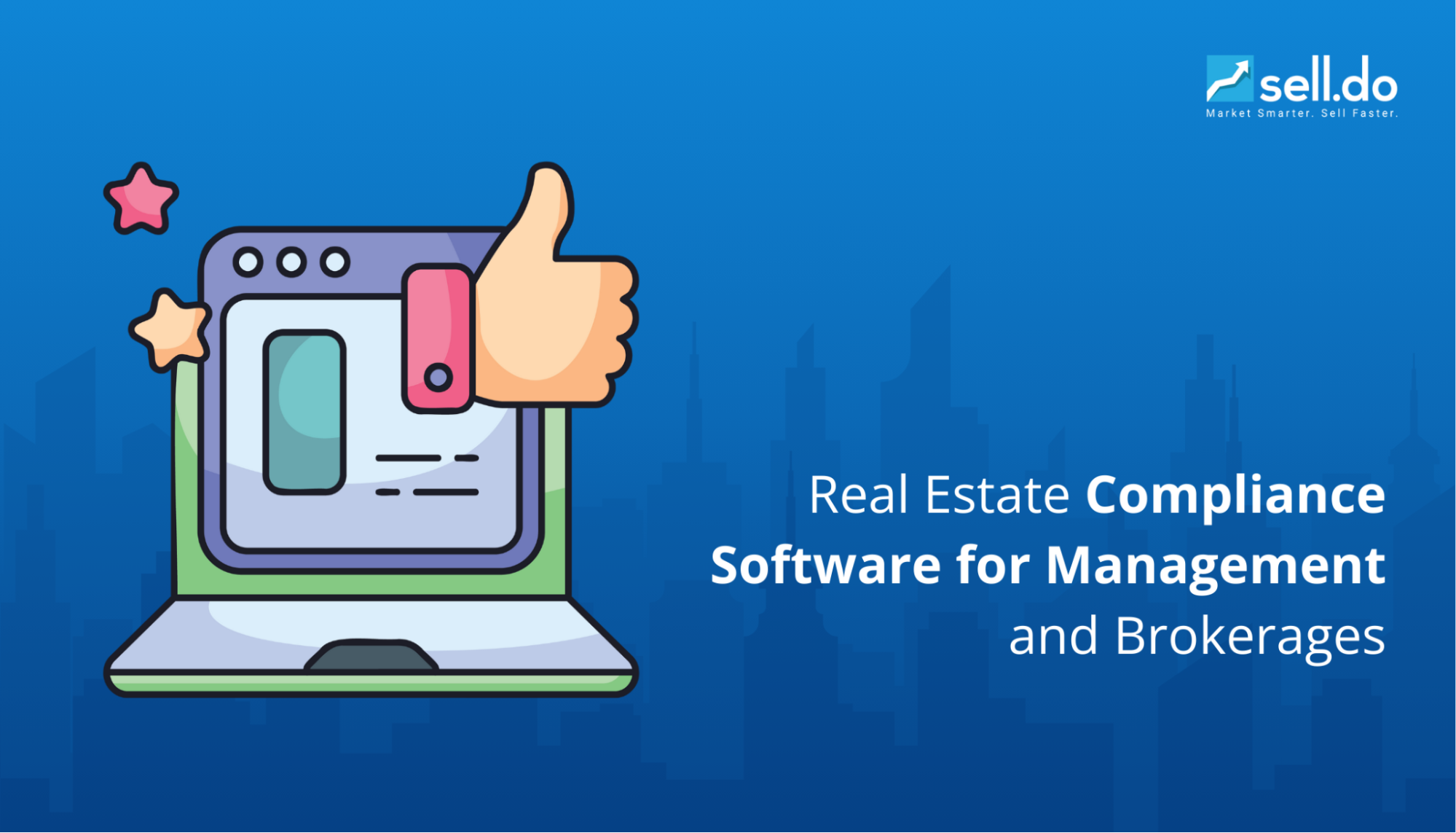While the real estate industry in India is booming at a rapid pace, it is still quite conventional in its operational approaches. The several aspects of the industry including - marketing, sales, service management, and customer relations - are managed internally and single-handedly by realtors, with a few staff personnel.
This applies primarily to small realtors who have limited capital investments and do not have the luxury of appointing professionals for every department.
However, putting everything in one basket proves to be quite challenging for small players as they lose business on several factors like inefficient lead follow-ups, absence of a proper and strategic marketing sales plan, unorganized paperwork, and so on, all of which restrict the growth and progress of the firm.
An effective Real Estate CRM software can turn the tables on and solve the hurdles of organizing and managing all activities of a Real Estate Business with a more strategic and systematic approach by storing all sellers, business leads, and customer data all under one umbrella.
What is a CRM?
CRM, or Customer Relationship Management, is software that helps businesses and enterprises to develop, retain and acquire new customers and maintain old ones through strategies, tools, techniques, and technologies, applied in an organized way, all on a single platform, under one software.
It ensures smooth and efficient interaction with customers, which leads to an increment in the overall profit figures. The software collects information on customers from multiple sources and channels with regard to overall purchase history, personal info, and even purchasing behaviour patterns.
Using professional CRM software can assist you in finding new buyers, winning their confidence and trust, and providing them with qualified, professional support throughout their journey.
What is CRM in Real Estate?
CRM for Real Estate is a type of strategy and software used by both Real Estate firms and agents to manage their business operations conveniently and successfully. It enhances your approach towards your prospective leads by keeping all metrics, data, and contacts in one place and helps maintain better customer relations and yield benefits in terms of profits for the business in the long run.
As a strategy, Real Estate CRM assists Real Estate businesses to build, manage and sustain long-lasting successful relations with both customers and leads. And as software, it represents an organized process or system that stores and manages all information relating to sellers, business leads, and customer data under one head. This may include information about prospective leads, as well as new and existing customers too. Also, you can even add other details about user interactive activities from lead generation channels, their personal communication and information details, and their purchase history.
Hence, it can be rightly said that apart from simply digitalizing and automating sales for your Real Estate business, CRM does a lot more to boost the overall growth, which includes:
- Tracking Campaigns for lead generation
- Contact management for real estate leads
- Managing schedules
- Contract sharing
- Managing marketing campaigns for your business.
Advantages of using an effective Real Estate CRM for your property business:
An effective real estate CRM software enables you to get a profile of your customers, which enables you to study their interests closely, get their purchase history, etc. With an ever-increasing scope in the flourishing industry, CRM software can turn the game in your favour. Let us look at its advantages closely:
-
Get to know your target audience:
![Mask Group 2.png]()
Whether you call them segments, cohorts, or groups, many prospective customers can be categorized easily as per their attributes. This lays the foundation for understanding your prospective leads' behaviour patterns and buying capacity.
When considering the Real Estate segment, the most common one is to shortlist your leads based on their interests. This way, you would be able to rule out which of your target audience would respond positively to your marketing campaigns and thereby bringing you closer to the highest priority clients who are ready to invest in a property.
In a nutshell, the CRM software assists in your marketing strategy with collective audience insights, which would help you extract the maximum revenue from your sales processes.
-
Tracking leads & 24/7 availability of your executives:
![Mask Group 2.png]()
In the competitive market of real estate, businesses must stay in contact with their customers 24/7. Not responding to a potential client at the right time could lose them to your competitors as they may pull them into their marketing funnel.
When you incorporate CRM into your real estate business, it acts as a 24/7 response system to your clients by creating autoresponders that send an acknowledgment message and assure that they are in touch with your business.
-
Efficiently catering to your high-end clients:
![Mask Group 2.png]()
Both first-time and long-term customers need to be kept in touch to maintain the trust and confidence in your brand by catering to their essential requirements. This can be done through custom, automated workflows with robust real estate business software by sharing vital intel with your customers, leading to other avenues to generate additional revenue.
CRM helps you create a workflow sequence that will help you be ready to cater to your customer's needs regularly. At every successful touchpoint, the bond and trust between you and your client are reinforced, thereby increasing the possibility of repeat business.
-
Marketing technology tools & their integrations:
![Mask Group 2.png]()
Most modern CRM software are supported by multiple integrations, unlike silos which are quite frustrating and time-consuming to work on. They have multiple integration options that enable easy connections with other marketing technology tools, minimizing the time used and getting things done faster.A single all-in-one CRM solution can lead to a larger turnaround for real estate businesses.
-
Optimum utilization of email marketing:
![Mask Group 2.png]()
A single, holistic view of customer interactions can be constructed through direct or indirect integration with email systems with an effective Real Estate CRM software.
Zapier-enabled CRM integrations are among the most effective email marketing tools that enable you to continue using your existing email marketing system even when installing a new CRM system. They enable and allow personalized communication, integrate email analytics and even encourage re-engagement through various email campaigns that push towards converting leads into permanent clients.
-
Integration of calls:
![Mask Group 2.png]()
Real Estate CRM allows VoIP internet calls. With a CRM system installed, agents can directly call from it, and these calls can be recorded for later use. They help businesses to keep track of contact numbers, addresses and other useful information as well. This way, they can synchronize and consolidate valuable data in a more organized manner.
-
Calendar management & scheduling integrations:
![Mask Group 2.png]()
One of the vital aspects of a real estate business is scheduling appointments, tasks, and events. As boring as these may sound, a real estate business cannot grow without them. However, this process can be made easy, convenient, and effective with Real Estate CRM software that integrates calendar tools like Outlook and Google to help schedule events.
-
Marketing automation tools & their integration:
![Mask Group 2.png]()
Most modern Real Estate CRM software comes powered by their own Real Estate Marketing Automation software features that help track leads, create a workflow to distribute marketing collaterals, and create social media schedules to make web analytics more simple. This collaborates the marketing and sales team's work more effectively and efficiently.
-
Social media tools & their integrations:
![Mask Group 2.png]()
A CRM software for Real Estate businesses effectively tracks social media posts across various social media platforms in real-time, making it possible to understand what your customers are engaging with. It also allows you to get in touch with your customers quickly.
Hence, it makes it easy for you to comprehend customer sentiment information on your product and services by segmenting your list and data collection more accurately on real-end customers.
-
Integration of service desk:
![Mask Group 2.png]()
CRM, along with a service desk function, allows better customer satisfaction by providing prompt services towards resolving customer problems and grievances. Data exchange between the system and the customers can happen smoothly and more efficiently by producing a unified control center where customer service engagements and sales information can be conveniently recorded.
Final Take:
A well-integrated Real Estate CRM software can be a blessing in disguise for builders and agents alike. Real estate CRM benefits businesses in day-to-day operations and assists them in customer retention and customer acquisition, and better data management. It even initiates better and more effective communication with proper time management and enhanced accessibility. All these features make the routine operations of a real estate firm more organized and profitable in the long run.
And if you are looking for a robust real estate CRM solution, then Sell.do is undoubtedly one of the most efficient real estate CRM software solutions you can get for your business. It offers a complete end-to-end CRM solution that empowers you to streamline your businesses' daily operations with ensured and uninterrupted workflows.
Sell.Do is designed to improve collaboration between your stakeholders, enable a better customer experience by building a strong brand reputation, help to understand customer insights, and increase marketing and sales efficiencies for your Real Estate business. It further helps in lead scoring, escalation management, routing, and approval procedures that make it the best CRM software choice for the Real Estate industry.

















Leave a comment
Comments (0)
Be the first one to comment.